Related Research Articles
Macquarie University is a public research university based in Sydney, Australia, in the suburb of Macquarie Park. Founded in 1964 by the New South Wales Government, it was the third university to be established in the metropolitan area of Sydney.

Sydney is the capital city of the state of New South Wales, and the most populous city in both Australia and Oceania. Located on Australia's east coast, the metropolis surrounds Sydney Harbour and extends about 70 km (43.5 mi) towards the Blue Mountains to the west, Hawkesbury to the north, the Royal National Park to the south and Macarthur to the south-west. Sydney is made up of 658 suburbs, spread across 33 local government areas. Residents of the city are known as "Sydneysiders". The 2021 census recorded the population of Greater Sydney as 5,231,150, meaning the city is home to approximately 66% of the state's population. Nicknames of the city include the 'Emerald City' and the 'Harbour City'.
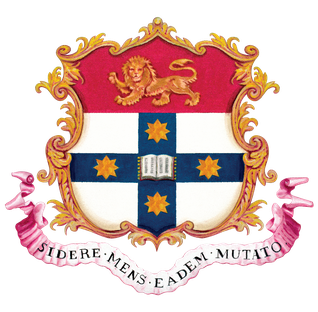
The University of Sydney (USYD), also known as Sydney University, or informally Sydney Uni, is a public research university located in Sydney, Australia. Founded in 1850, it is the oldest university in Australia and is one of the country's six sandstone universities. The university comprises eight academic faculties and university schools, through which it offers bachelor, master and doctoral degrees.
The University of New South Wales (UNSW), also known as UNSW Sydney, is a public research university based in Sydney, New South Wales, Australia. It is one of the founding members of Group of Eight, a coalition of Australian research-intensive universities.
The University of Technology Sydney (UTS) is a public research university located in Sydney, New South Wales, Australia. Although its origins are said to trace back to the 1830s, the university was founded in its current form in 1988. As of 2021, UTS enrols 45,221 students through its 9 faculties and schools.

John Job Crew Bradfield was an Australian engineer best known as the chief proponent of the Sydney Harbour Bridge, of which he oversaw both the design and construction. He worked for the New South Wales Department of Public Works from 1891 to 1933. He was the first recipient of an engineering doctorate from the University of Sydney, in 1924. Other notable projects with which he was associated include the Cataract Dam, the Burrinjuck Dam, and Brisbane's Story Bridge. The Harbour Bridge formed only one component of the City Circle, Bradfield's grand scheme for the railways of central Sydney, a modified version of which was completed after his death. He was also the designer of an unbuilt irrigation project known as the Bradfield Scheme, which proposed that remote areas of western Queensland and north-eastern South Australia could be made fertile by the diversion of rivers from North Queensland.
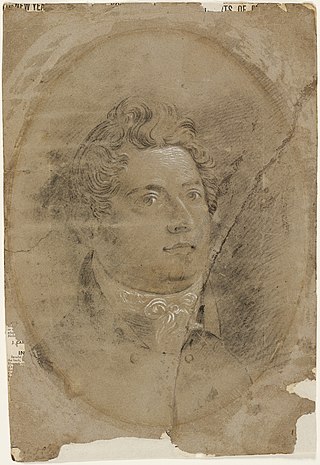
Francis Howard Greenway was an English-born architect who was transported to Australia as a convict for the crime of forgery. In New South Wales he worked for the Governor, Lachlan Macquarie, as Australia's first government architect. He became widely known and admired for his work displayed in buildings such as St Matthew's Church, St James' Church and Hyde Park Barracks.
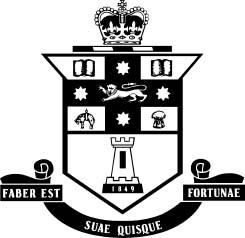
Fort Street High School (FSHS) is a government-funded co-educational academically selective secondary day school, located in Petersham, an inner western suburb of Sydney, New South Wales, Australia. Established in 1849, it is the oldest government high school in Australia and, notably, the first school not founded by a religious organisation. Today, it remains a public school operated by the New South Wales Department of Education. As an academically selective secondary school, it draws students from across greater metropolitan Sydney.

Glebe Point Road is the main road of the inner city suburb of Glebe in Sydney, New South Wales, Australia. It is a boutique shopping strip with numerous restaurants and cafés.

The State Library of New South Wales, part of which is known as the Mitchell Library, is a large heritage-listed special collections, reference and research library open to the public and is one of the oldest libraries in Australia. Established in 1869 its collections date back to the Australian Subscription Library established in the colony of New South Wales in 1826. The library is located on the corner of Macquarie Street and Shakespeare Place, in the Sydney central business district adjacent to the Domain and the Royal Botanic Gardens, in the City of Sydney. The library is a member of the National and State Libraries Australia (NSLA) consortium.
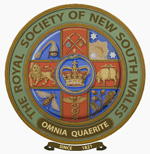
The Royal Society of New South Wales is a learned society based in Sydney, Australia. The Governor of New South Wales is the vice-regal patron of the Society.
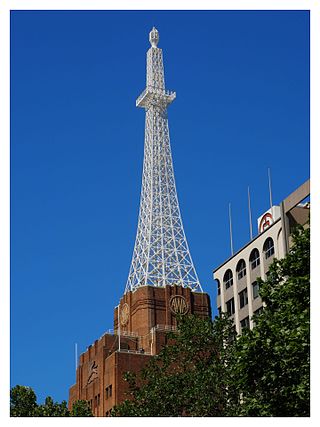
The AWA Tower is a heritage-listed office and communications complex in Sydney, in the state of New South Wales, Australia built for Amalgamated Wireless Australasia Limited. The AWA Tower consists of a radio transmission tower atop a 15-storey building. It is located in the Sydney central business district at 45-47 York Street, close to Wynyard Park and Wynyard railway station. It was designed by Robertson, Marks and McCredie in association with DT Morrow and Gordon and built from 1937 to 1939 by William Hughes and Co. Pty Ltd. It was added to the New South Wales State Heritage Register on 2 April 1999.
Gavan McDonell is an Australian civil engineer, economist and political sociologist in the fields of national infrastructure policy reform, international development and academic education for advanced sustainability studies.

Local history is the study of history in a geographically local context, often concentrating on a relatively small local community. It incorporates cultural and social aspects of history. Local history is not merely national history writ small but a study of past events in a given geographical area which is based on a wide variety of documentary evidence and placed in a comparative context that is both regional and national. Historic plaques are one form of documentation of significant occurrences in the past and oral histories are another.

The Paddington Reservoir is a heritage-listed public park located at 255a Oxford Street in the inner eastern Sydney suburb of Paddington in the City of Sydney local government area of New South Wales, Australia. It was designed by Edward Bell and built from 1864 to 1866 and operated as a water reservoir which accepted water from the Botany Swamps pumping station for supply to parts of Sydney between 1866 and 1899. In the twentieth century the site variously functioned as a service station and storage and mechanical workshop site. In 2006 work commenced to convert the site into a sunken garden and park. It is also known as Walter Read Reserve; Paddington Reservoir Gardens; Reservoir Gardens. The property is owned by City of Sydney. It was added to the New South Wales State Heritage Register on 2 April 1999.
AusStage: The Australian Live Performance Database is an online database which records information about live performances in Australia, providing records of productions from the first recorded performance in Australia up until the present day. The only repository of Australian performing arts in the world, it is managed by a consortium of universities, government agencies, industry organisations and arts institutions, and mostly funded by the Australian Research Council. Created in 2000, the database contained more than 250,000 records by 2018.
Joan Kerr (1938–2004) was an Australian academic and cultural preservationist. Initially her interest was sparked in preserving the architectural heritage of Australia, but over time her interests spread to art history and Australian culture in general. She taught at many universities throughout the country and was involved in Historical Societies and Preservation Trusts in a variety of the territories. She wrote books on Australia's historic architecture, feminist artists, cartoonists and her major life work was producing the Dictionary of Australian Artists: Painters, Sketchers, Photographers and Engravers to 1870.

The National Herbarium of New South Wales was established in 1853. The Herbarium has a collection of more than 1.4 million plant specimens, making it the second largest collection of pressed, dried plant specimens in Australia, including scientific and historically significant collections and samples of Australian flora gathered by Joseph Banks and Daniel Solander during the voyage of HMS Endeavour in 1770.

The Argyle Bridge is a heritage-listed road bridge that carries Cumberland Street across the Argyle Cut and Argyle Street in the inner-city Sydney suburb of The Rocks in the City of Sydney local government area of New South Wales, Australia. It was built from 1911 to 1912. It is also known to include the Argyle Stairs. The property is owned by the Property NSW, an agency of the Government of New South Wales. It was added to the New South Wales State Heritage Register on 10 May 2002.

Grace Elizabeth Karskens, is an Australian historian who is professor of history at the University of New South Wales.
References
- ↑ 'Dictionary of Sydney goes live Archived 2016-03-03 at the Wayback Machine ', University of Sydney E-news, 25 February 2010
- ↑ Duffy, Michale (21 March 2008). "City's history on speed dial: images to give dictionary new meaning". Sydney Morning Herald. p. 31. ProQuest 364399795.
- ↑ 2010 National Trust Heritage Awards Winners
- ↑ "So long Sydney | The Dictionary of Sydney". dictionaryofsydney.org. Retrieved 2022-07-17.